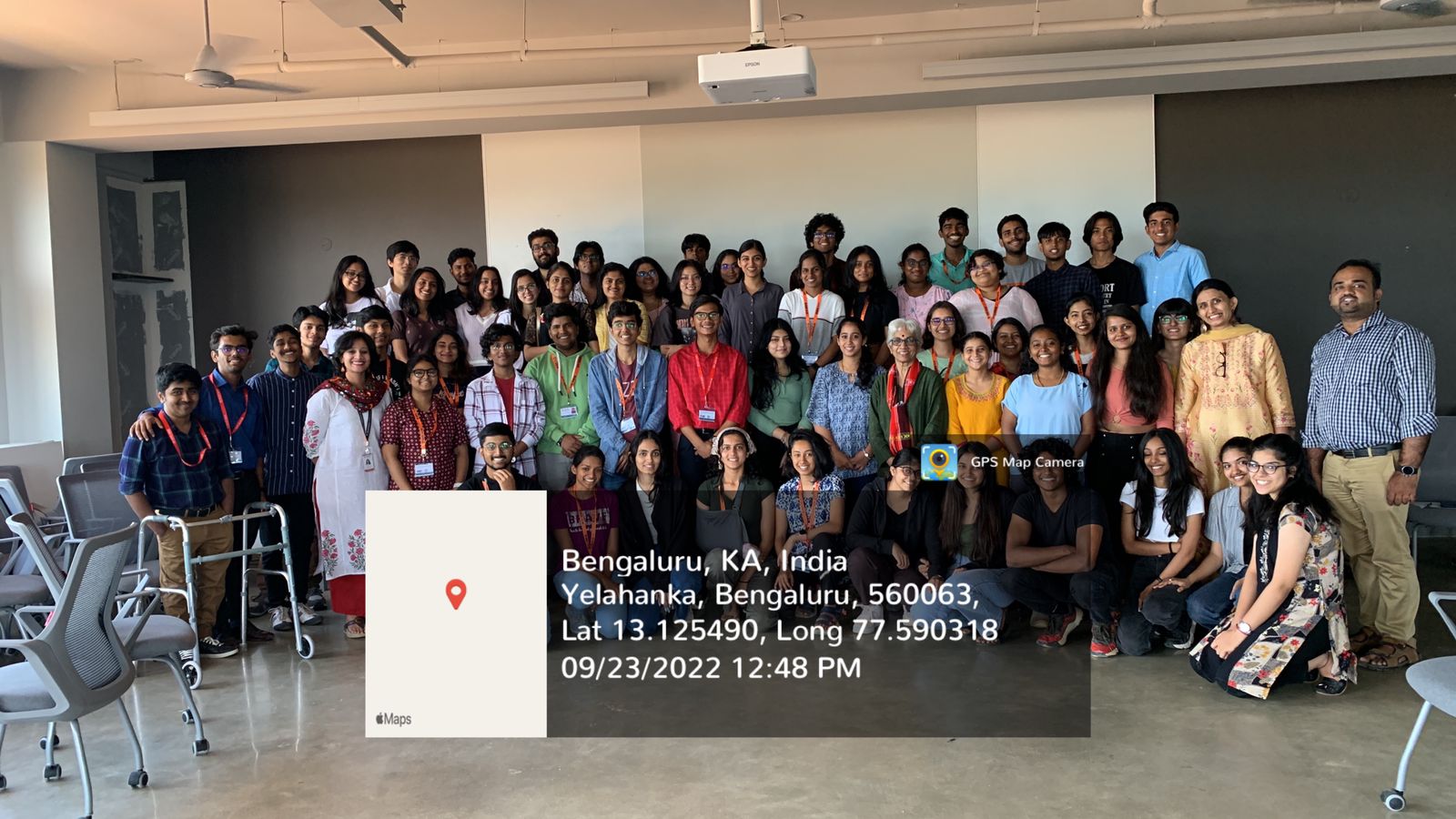Start Date: September 23, 2022
End Date: September 23, 2022
The renowned academician and the guest speaker for the event, Dr Radha Ramaswamy, started off by revealing that she had initially been invited for a lecture, but had decided to do a workshop instead. After three hours of engaging activities, thoughtful discussion and insight into the self for both the students and faculty involved, almost everyone would agree that this decision was taken for the best.
At the start of the masterclass, after the student emcees had introduced her to the audience, Dr Ramaswamy immediately set the guidelines for group events that ensured everyone could enjoy themselves in a safe space – confidentiality must be maintained, every person must speak only for themselves, and everyone’s boundaries and viewpoints must be respected. These basic “rules”, of sorts, were the crucial pillars on which a series of community-building events could rest. Due to this fantastic start, all the activities planned were carried out without a hitch.
Cover the Space was the first game; all the students walked in a large crowd and tried to cover the available space as much as possible. The next was “tota-pinjra-toophan” (parrot-cage-storm), followed by Blind Walking. Both games were a mixture of exciting chaos and an exercise in knowing the self, as everyone gained insight by analysing how they had behaved in the game under the gentle leadership of Dr Ramaswamy. The culmination of the games was Colombian Hypnosis – a game where a “leader” controlled the movements of a “follower” by guiding them with a palm in front of their face. Questions about good leadership and the struggle to give up free will in order to follow, rose automatically. The participants had clearly experienced a shift, from merely enjoying the games to thinking deeply about them and the lessons that could be learned from them. Colombian Hypnosis, hence, was the perfect set-up for the highlight of the entire masterclass: forum theatre, and a discussion about breaking patterns and initiating change.
All the participants sat in a circle and observed two volunteers take on the role of actors; the two used the set-up of “leader” and “follower” to personify the relation between a person and the systems that oppress them. All the spectators watched the “follower” fall to the ground, crushed by the oppressor. Then, under the instruction of Dr Ramaswamy, people in the audience stood and joined the “play”, becoming “spect-actors” instead of spectators. They stopped the scene from playing out how it did before, and stepped into the role of the oppressed only to attempt to break free of it. Through resistance, force or united effort, many options were explored, and questions asked: how do we use weapons that are strong, but not violent? How do we fight a system that doesn’t have a face? Ultimately, though, it speaks to the genius of Dr Ramaswamy, that she was able to generate such thoughtful sentiments through the seemingly simple medium of games and community theatre.




